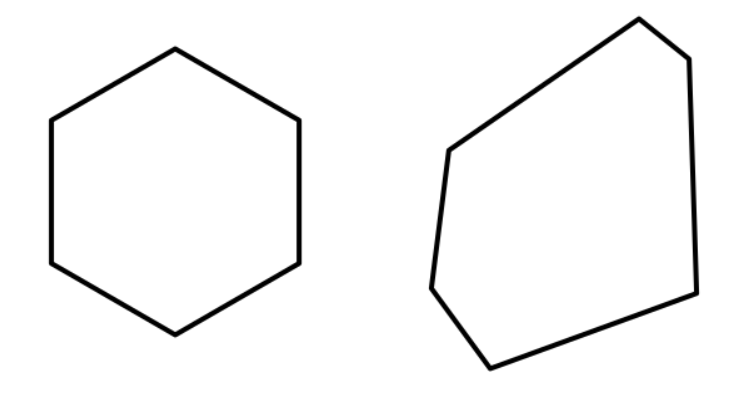More percisely:
Question: Is there a (convex) polytope that has a unique realization up to, say, projective transformations?
I suppose I have to assume that it has more than $d+2$ vertices/facets if it is $d$-dimensional, to avoid some trivial cases such as simplices. By realization I mean just any other polytope that has the same combinatorics as the original one, that is, the same faces being incident in the same way.
For example, the hexagon is not such a polytope, as there are many irregular hexagons that are not projective transformations of the regular hexagon.

More generally, such a polytope cannot be simple of simplicial, as in these cases there are generic ways to move vertices or facets to change its shape while keeping the combinatorics.
I am not sure that projective transformations are the most general thing one wants to exclude to make this an interesting question. I am open for other ideas. Here is another similar question:
Question II: Is there a centrally symmetric polytope that has a unique realization up to linear transformations?
This time with $> d+1$ vertices/facets if it is $d$-dimensional.
